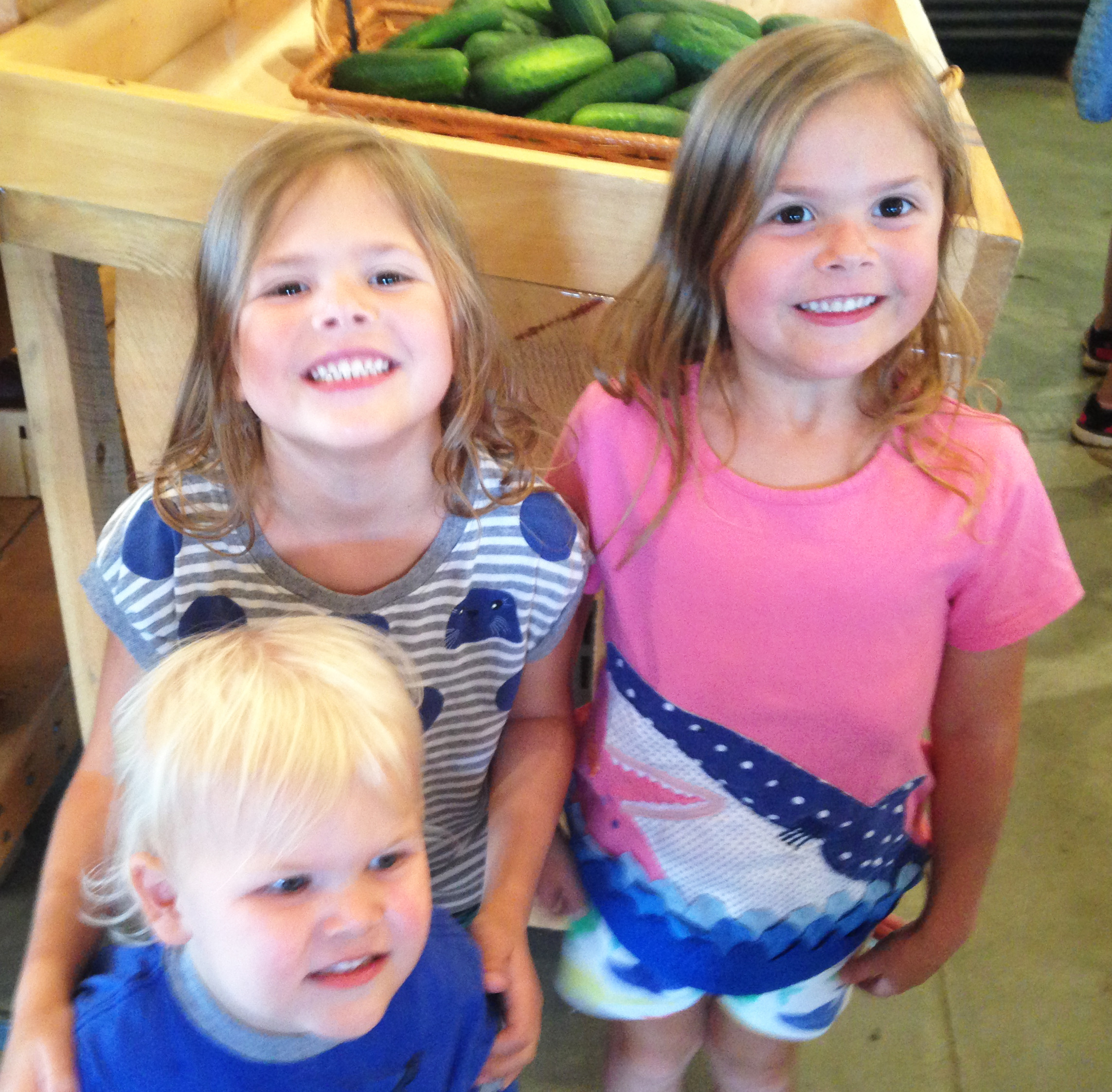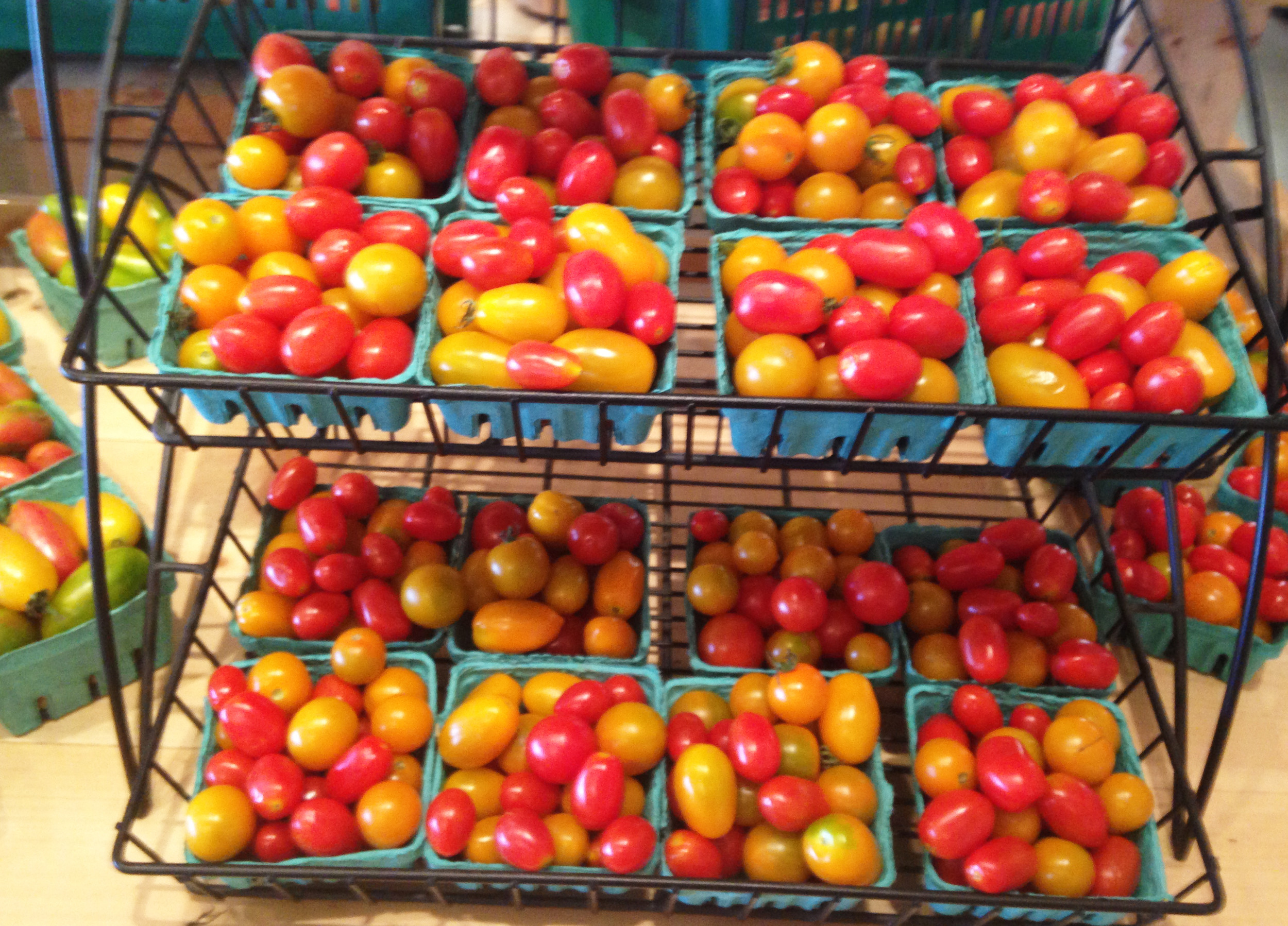What do food shoppers really want?
Is it convenience and lower cost, or is it an opportunity to shop directly from the farmers who are growing the food?
PROVIDENCE – Last week, the news that federal regulators had approved the $13.7 billion takeover by Amazon of Whole Foods Market was immediately followed by an by announcement by the CEO of Amazon Worldwide Consumer that the new entity would be offering consumers price cuts on a variety of groceries, including organic large brown eggs, organic bananas, organic avocados, organic baby kale and baby lettuce, organic Gala and Fuji apples, organic rotisserie chicken responsibly farmed salmon and tilapia, and almond butter, beginning on Aug. 28.
“We determined to make healthy and organic food affordable for everyone,” said Jeff Wilke, CEO of Amazon Worldwide Consumer, in a news statement, as reported by Money magazine.
“Everybody should be able to eat Whole Foods Market quality,” Wilke continued. “We will lower prices without compromising Whole Foods Market’s long- held commitment to the highest standards.
As a result of the merger, Amazon, the leader in the e-commerce consumer marketplace, will seek to leverage its capability to deliver on convenience with the commercial grocery food industry, according to industry analysts.
Buying the hype
In its recent story with the headline, asking a rhetorical question, “How Amazon’s Whole Food takeover may lower your grocery bill,” CNBC’s reporter Tom Anderson quoted Mickey Chadha, Moody’s vice president, who in an interview on Squawk Box, said: “This transaction is going to change the landscape of how you buy food.”
Those changes will take place, according to Anderson, adopting a snarky tone of voice, even if you do not have an Amazon Prime membership or regularly stock up on heirloom tomatoes from “Whole Paycheck.”
In the future, if a drone carrying your favorite caramel and sea salt gelato is only one click away, how many more pints will you buy? Anderson asked, citing experts who claimed that nothing is more impulsive than buying food and beverage.
In her story, Jennifer Van Grove, reporter with The San Diego Union-Tribune, put the Amazon /Whole Foods merger within the context of a large real estate deal. Van Grove quoted Patricia Orsino, an emarketer analyst who tracks grocery e-commerce, who said: “I feel [this] was a real-estate acquisition,” said Orsini. “They have 460 retail outlets … to experiment with retail initiatives.”
Already, Van Grove continued, Amazon has signaled it will use some of the grocery venues to house Amazon Lockers, where online customers can pick up their orders. The company may also seek to use its brick-and-mortar locations to tryout new programs, such as Instant Pickup and AmazonFresh Pickup on a much larger scale.
Google and Walmart have also been pursing an e-commerce strategy for grocery purchases and pickups.
How will customers in Providence, with two out of the three Whole Foods stores in Rhode Island, respond?
A brief history of the greening of supermarkets in Rhode Island
In 1990, the Massachusetts-based Bread & Circus supermarket chain opened its first store at the Waterman Street location, an expansion of its Massachusetts-based grocery stores, with an initial business plan that focused on offering organic, healthy meat products.
In 1991, then Mayor Buddy Cianci helped to celebrate the store’s first-year anniversary of the store, admitting candidly, in a somewhat perplexed tone after the event, that Providence seemed to have one of everything, even an organic food store.
Bread & Circus was then bought out by Whole Foods, based in Austin, Texas, and expanded its operations in Rhode Island, opening larger stores at the North Main Street location in Providence and in Cranston, just past Garden City.
Today, it’s true, you never know who you might bump into shopping at Whole Foods – Ted Nesi from WPRI, reporters from The Providence Journal or The Boston Globe, restaurant owners, the executive director of nonprofit entrepreneurial center, nurse midwives from Women & Infants Hospital, a spokeswoman from R.I. EOHHS, even former Gov. Lincoln Chafee.
Of course, to bump into familiar faces shopping amidst the aisles of fresh produce may no longer be a surprise. It does not require a need to invoke the poetry of Allen Ginsberg and his “A Supermarket in California:”
What thoughts I have of you tonight Walt Whitman. …In my hungry fatigue and shopping for images, I went into the neon fruit supermarket. … What peaches and what penumbras. Whole families shopping at night! Aisles full of husbands! Wives in the avocados, babies in the tomatoes – and you, Garcia Lorca, what were you doing down by the watermelons?”
Back to the roots
It was a busy Sunday afternoon at Four Town Farm, a local farm that straddles the boundaries of Seekonk, Barrington, Swansea and East Providence, a farming enterprise that has been run by the same family for seven generations, according to a long-term employee staffing the cash register. The produce included fresh corn, fresh field tomatoes, watermelon, lettuce, melons, broccoli, string beans, cabbage, carrots, peaches, potatoes, and kale, all locally grown on the farm.
A mother and her father and their three children waited patiently on the line; when asked, the two young daughters said they like shopping at Four Town Farm much more than going shopping at Whole Foods Market, in particular shopping for their favorites – tomatoes and corn.
When the father took the three kids to visit the goats at a nearby pen on the farm, the mother said that while she did not like shopping, per se, because of the time it took with three young children, she said she wasn’t sure how the merger would improve convenience or reduce costs.
At the cash register, the long-time employee said, in her opinion, the merger between Amazon and Whole Foods would not cut into Four Town Farms’ customer base. When people come here, it’s very much like family, she told ConvergenceRI, a place where everyone knows your name.
It is all about community, she said.
The art of healthy food shopping
At a Saturday morning farmers’ market, the evocation of community was to be found everywhere, as several hundred shoppers perused the offerings from dozens of local farms and food establishments and food trucks at the Hope Street Farmers Market at the end of Blackstone Boulevard. There were young mothers with babies, older men and women carefully shopping for bargains, a host of dogs and a musical group serenading the crowd. Everywhere you walked the vibe was positive; even all the dogs seemed to get along.
As the website describes it, the “Hope Street Farmers Market is a farmer-run cooperative created and managed by many of the best farmers and food artisans in Rhode Island.”
The market is located roughly equidistant from Providence’s two Whole Foods locations, and even though there were plenty of grocery bags bearing the Whole Foods brand, the shoppers seem to relish the ability to go from stand to stand, sampling the wares and making purchases.
The Hope Street Farmers Market, along with a dozen or more farmers markets located throughout Rhode seem to offer shoppers a counterpoint to the push for greater convenience by corporate entities. When asked why they liked shopping at the farmers market, numerous shoppers told ConvergenceRI it provided them with a sense of community, a sense of belonging.
Food insecurity
Amy Nunn, director of the R.I. Public Health Institute at the School of Public Health at Brown University, offered a word of caution about the new merger between Amazon and Whole Foods.
“It’s exciting that Whole Foods brand prices may come down for some shoppers,”Nunn said. “However, I doubt whether this will be a big component of the food insecurity solution for Rhode Island.”
Nunn said she doubts whether prices will come down enough to compete with prices where many food insecure Rhode Islanders currently shop.
“Another concern I have,” Nunn continued, “is whether this might be a tactic to capture [greater] share. I wonder whether this may ultimately squeeze smaller grocers out of the market by ultimately reducing competition.
Nunn asked whether the move by Amazon to merge with Whole Foods could ultimately undermine the food industry, similar to what happened to local book stores. “We now have very few local bookstores,” she said. “I try to buy local whenever I can – whether it is books or food.”
Strategies to create food security
Steve Maciel, a community food activist in Rhode Island, also weighed it on the Amazon-Whole Foods merger.
“In my 30-years experience as an activist to create food security, my feeling about mega-sized retailers acquiring smaller food outlets is one of concern,” said Steven Maciel, founder of the Rhode Island-based “1 of 52 Hunger Network.”
If the merger of Amazon and Whole Foods can help increase food distribution and access in what he called “food desert” areas, than Maciel said he was all for it.
Maciel told ConvergenceRI that he believed that food security in the U.S. should not be an issue.
Food outlets that will be dominated by the likes of Amazon and Walmart, Maciel continued, need not only consider those customers who have limited access to their products. In his opinion, Maciel said, “The more corporate these food outlets become, the level of client services” will suffer.







